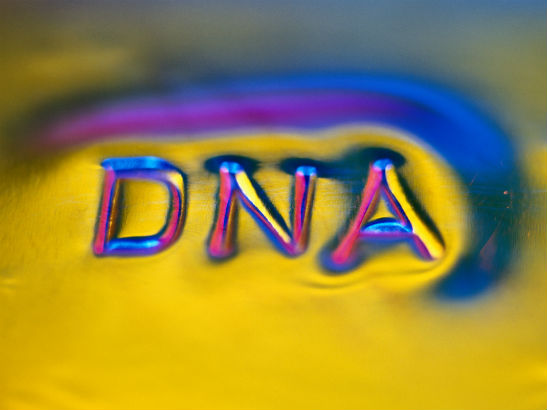Patients with the blood cancer myeloma whose cancer cells carry genetic changes associated with both good and bad prognosis have outcomes similar to those with bad risk changes alone, a new study reports.
Survival from myeloma is normally improved if patients’ tumours undergo a genetic change called hyperdiploidy - but scientists found this was not enough to offset the negative effects of genetic changes when they occurred in the same patient.
The findings suggest that myeloma patients with both ‘good’ and ‘bad’ genetic changes are at as much risk of aggressive disease as patients with bad changes alone, and should be considered for more intensive therapies
Myeloma is a type of blood cancer that develops in the bone marrow with about 5,000 people diagnosed in the UK each year.
Scientists at The Institute of Cancer Research, London, found that patients with hyperdiploidy survived for an average of five years, but survival was less than three years when their the myeloma also carried changes associated with bad prognosis.
The study was funded by the Wellcome Trust and Myeloma UK, and supported by the NIHR Biomedical Research Centre at The Royal Marsden NHS Foundation Trust and the ICR. The results were published in the journal Blood, in a paper co-authored by Dr Charlotte Pawlyn, a Clinical Research Fellow, and Dr Lorenzo Melchor, a Post-doctoral Training Fellow, at the ICR.
Harmful genetic changes – such as chromosomal translocations, where a break in DNA brings together two previously unlinked segments, or the gain or loss of a small segment of certain chromosomes - can lead to a more aggressive form of myeloma, while a type of genetic change called hyperdiploidy – where cells produce multiple copies of some chromosomes – is associated with better outcomes for myeloma patients. Until now it had been unclear what the overall effect was in patients whose cancers carried both ‘bad’ and ‘good’ genetic changes.
In this study, scientists at the ICR and Southampton University analysed genetic changes in bone marrow samples from 847 patients with myeloma, to determine the effect on survival outcome if patients had both bad and good risk changes.
The researchers found that 499 patients had hyperdiploidy, which conferred an improvement in survival, but patients whose cancer cells also had harmful genetic changes fared significantly worse.
Patients with hyperdiploidy alone survived on average for 60.9 months, but those with both hyperdiploidy and at least one harmful genetic change survived for an average of just 35.7 months. Having more than one adverse genetic change shortened survival for patients with hyperdiploidy further; to just 20 months.
The findings show that the beneficial effect of hyperdiploidy is not enough to protect myeloma patients from the harmful effects of adverse genetic changes. But testing for these changes could give important information to clinicians attempting to identify high risk patients, allowing them to tailor their treatment accordingly.
Study leader Professor Gareth Morgan, former Professor of Haematology at The Institute of Cancer Research, London, said: “Scientists know that certain genetic changes predict outcome for myeloma patients, but it wasn’t clear if ‘good’ genetic changes could outweigh the effects of ‘bad’ changes when patients have both. Our study found that if you have these bad genetic changes you do badly irrespective of whether you have the good ones or not.
“At the moment it is not clear what treatment is best for patients with high risk genetic changes and so there is no standard approach in the UK. In order to improve patient survival we need innovative treatment strategies and trials are being designed to find the optimal approach. Our research helps identify which risk group patients fall into and takes us one step closer to delivering accurate stratified medicine for myeloma.”
